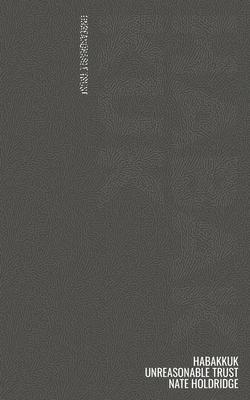At the end of the short book of Habakkuk, the prophet said that even if all the crops in Israel were to yield no produce and even if all the livestock in Israel died off, he would rejoice and take joy in God (3:17-18). Even if the earth suffered chaos in apocalyptic proportions, Habakkuk would trust God. God had made him strong, so he would move forward, trusting God despite all he saw (3:19).
That is how the book ends. But it is not how it begins. At the start of his book, Habakkuk was reeling. He questioned God. He was upset at God. And he longed to know what God was doing because, in Habakkuk's mind, God wasn't doing anything.
So what happened that took this man from despair to trust? A conversation with God-a conversation recorded in these three brief chapters. In their dialogue, Habakkuk fixates on a problem as he saw it, God gives a promise to Habakkuk and the world, and Habakkuk then praises God for what he heard before concluding with a strong song of faith. The conversation changes Habakkuk. He progressed from worry to worship and from fear to faith.
In (un)Reasonable Trust, author-pastor Nate Holdridge considers the progression Habakkuk passed through. Seeing his process helps us develop a trust in God that is not based on reasons we can see with our own eyes or logic (unreasonable, or without reasons), but a trust that is based on his nature (reasonable, or with reasons). And this level of trust is what God desires. He said, "The righteous will live by his faith," and Habakkuk shows us a man who got there (Habakkuk 2:4).
